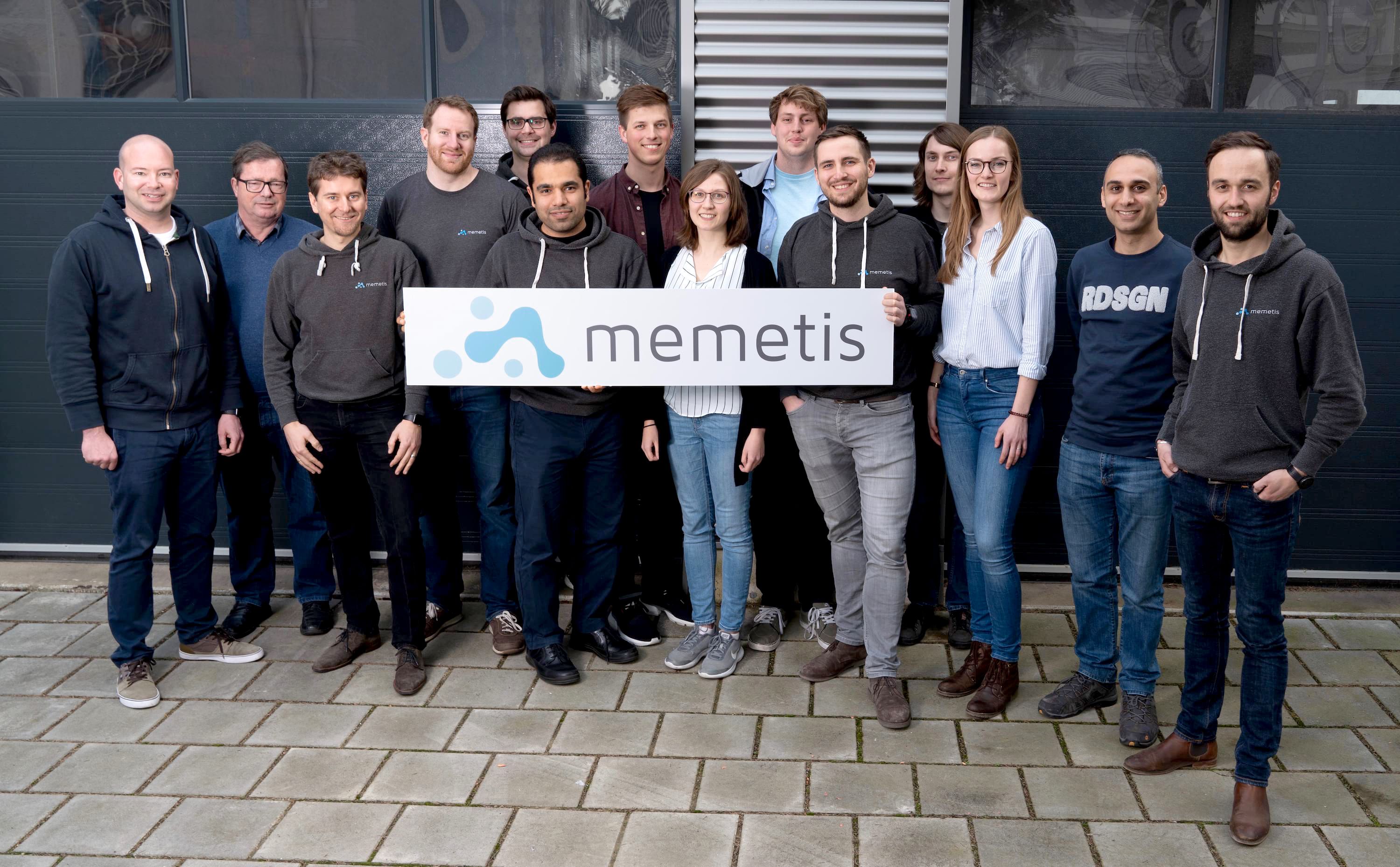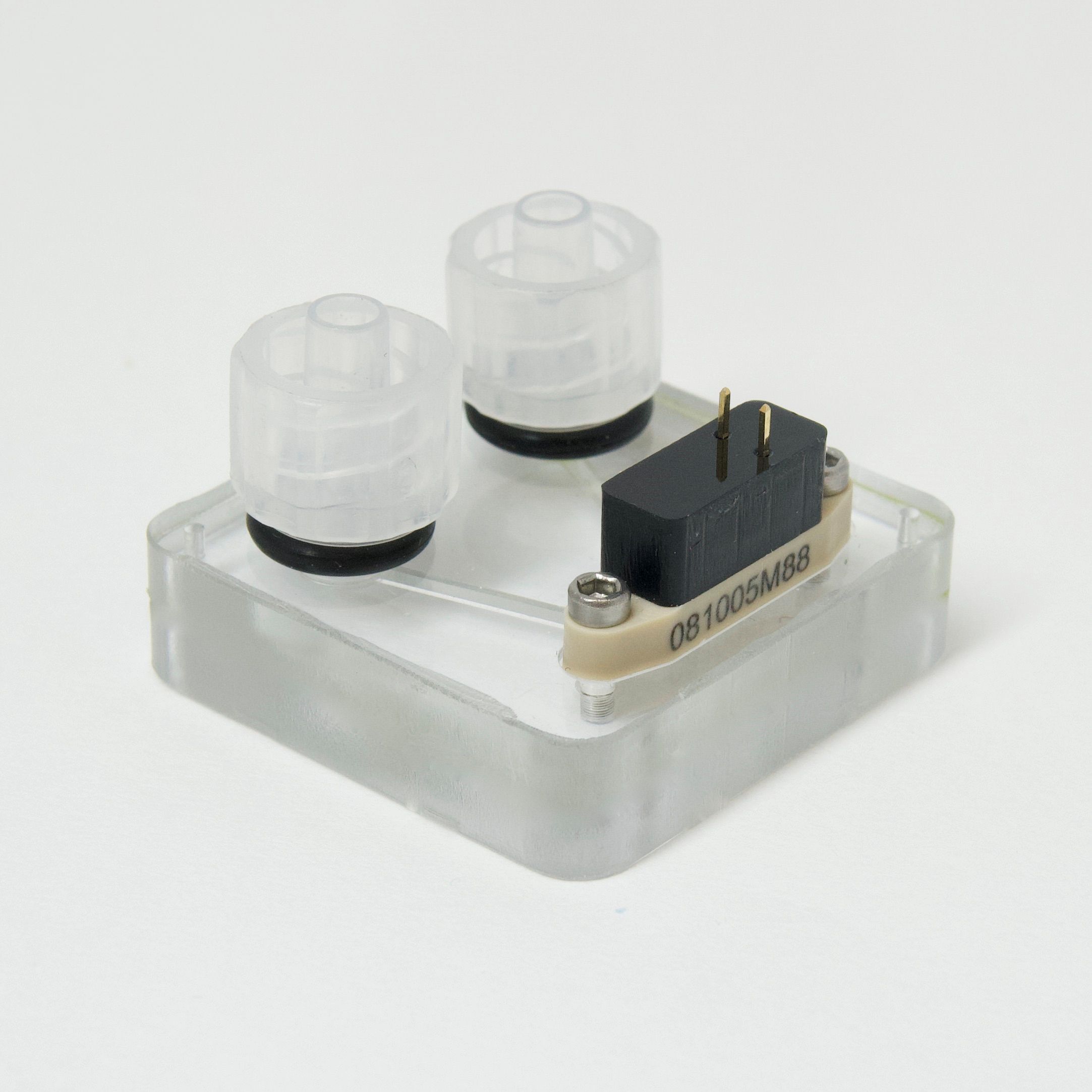Microfluidics in medical technology
Ultra-compact: valves with shape memory actuators
Actively generating movement in the smallest of spaces - and with the greatest possible force? The young Karlsruhe-based company memetis shows that this is possible. Intelligent components for controlling fluids open up huge potential in the medical technology and biotechnology sectors - from vaccine development and cell line analysis to drug research and point-of-care solutions.
Just as miniaturisation has revolutionised the electronics sector, the life sciences are also experiencing a new technological and more widely accessible era. Accommodating functionality in the smallest installation spaces is already well on its way with sensors and microcomputers. However, actuators pose a challenge. Actuators are small drive units that convert an electrical signal into a mechanical movement or actively intervene in the control process by changing pressure or temperature. However, due to the high demands on packing density, low weight and power consumption, conventional actuator technologies are increasingly reaching their limits – something that Dr. Marcel Gültig, Dr. Christof Megnin and Dr. Hinnerk Oßmer have successfully overcome with the help of ‘intelligent materials’.
Ultra-compact and intelligent
Their research on shape memory alloys (SMA) at the Karlsruhe Institute of Technology led the three engineers to believe that their intelligent materials had the potential to fill a large gap in the market. Their enthusiasm fired other people besides them. "With drives using electromagnets, you will certainly come up against limits at some point, especially with the increasing miniaturisation of components. With foils made of shape memory alloys, however, quantum leaps are possible when it comes to generating movement in the smallest of spaces," explains Christoph Wessendorf, a business expert brought on board by the scientists to put his commercial know-how to good use further developing the business idea. Together they founded the start-up company memetis in Karlsruhe in 2017.
 The four founders work with a large interdisciplinary team on innovative actuator tech-nology and micro valves (Photo: André Gall). © memetis GmbH
The four founders work with a large interdisciplinary team on innovative actuator tech-nology and micro valves (Photo: André Gall). © memetis GmbH"Miniature actuators made from shape memory alloys represent a niche. However, demand is huge and there is increasing interest in many industries," says Wessendorf. So what is the technology behind miniature actuators? "We are developing ultra-compact miniature valves and highly integrated microfluidic systems based on foils made of shape memory alloys. These are structured, metallic thin foils with a very special property: they can be deformed in a cold state, for example by pressure, and return to their original state independently and particularly quickly when heated. They remember the shape they were previously trained to adopt, so to speak - like a metallic muscle. The exciting thing about this is that the process releases forces that can move many times their own weight. We use this specifically for our actuators." If the actuators cool down, they lose their force; when they are heated up again by an electrical pulse, they can be activated again. And they do so without fatigue several million times with switching times of ten milliseconds. They represent a milestone in highly functional technology that makes many additional mechanical components superfluous as the function is already in the alloy itself.
Deep tech on a surface the size of a 5-cent coin
Shape memory alloys have already been used millions of times as passive elements, for example for stents. However, the use of the shape memory effect for electrically controlled actuators, and in particular the use of foils made of special high-performance alloys, sets a new benchmark, as Oßmer, head of Fluidics Development, explains: "With foils, we have completely different possibilities for shaping our components than with shape memory wires. This means we can fit the same actuator performance into an ever smaller space. At the same time, the forces and travel ranges of the actuators can be adjusted independently through optimised geometries. In addition, the actuators dissipate heat more efficiently and thus switch faster." Thus, memetis has designed special miniature valves for integration in particularly small and lightweight fluidic systems. Two valves fit on the surface of a 5-cent coin – and they achieve high performance: pressures of several bar can be switched within tenths to hundredths of a second.
 memetis Series 09 miniature valve on a laser-welded connection block. © memetis GmbH
memetis Series 09 miniature valve on a laser-welded connection block. © memetis GmbH"We achieve high switching forces with a very small internal volume of less than four microlitres with higher flexibility than conventional solenoid valves," says Megnin, who is in charge of manufacturing memetis’ valves, which are the company’s unique selling point. "The size of the overall system is reduced by a factor of two to five, saving both weight and energy. Until now, switching functions have often been transferred to peripheral devices due to the installation space required, whereas our systems work with integrated active components. This saves tube connections and consequently potentially expensive reagents." A decisive advantage, especially for medical devices and diagnostic systems.
Portable solutions in the life sciences sector
Hospital medical equipment, as well as medical wearables, are suitable devices to equip with memetis’ high-performance miniature valves. The eleven-member team manufactures miniature valves for pumps and dosing units, for example for the application of insulin. Elegant solutions are also available for a wide variety of lab-on-a-chip systems, which aim to accommodate complex processes for analysis and diagnosis in the smallest possible space, namely on a single chip. Oßmer is aware of the requirements for medical devices: "Our products are biocompatible and can thus be used in a variety of ways in laboratory environments."
Since the actuators themselves do not come into contact with the medium, we can adapt our valve housings to a variety of bioanalytical and diagnostic systems." A big plus: the electrically excited switching elements made of thin foils require less than 0.3 watts and are thus more energy-efficient than conventional miniature valves. Battery operation is also easy to implement. The valves also operate silently, which is particularly appreciated in medical settings.
From virus particles to active substances - finding the needle in the haystack
In view of recent developments related to the SARS-CoV-2 coronavirus, an obvious goal is to be able to carry out diagnostics independently of large central laboratories, as point-of-care or point-of-need tests. The memetis developers are working with Biovice Systems on a rapid PCR test system for diagnosing COVID-19, which is currently being tested at Aalborg University Hospital in Denmark. Here, memetis is supplying the fluidic control to enable the greatest possible functionality in a very compact and therefore portable device.
Detective work is also required in drug development, an area where thousands of substances are analysed and compared with each other to determine which candidates are suitable as active agents against certain diseases. The efficient and resource-saving search for substances is essential especially in the case of diseases for which no drugs are yet available. Until now, 2D cell culture screenings and animal experiments are often used for this purpose. With compact fluidic systems and solutions for 3D cell culture and organ-on-a-chip models, memetis can give drug development a decisive push forward. The principle behind it? Microfluidic systems take over the function of the heart and blood vessels. A tricky business, because recreating the cell environment of a real organism sufficiently realistically in the laboratory is far from easy. It is far more successful in appropriately constructed 3D cell scaffolds than in a flat Petri dish. This means that the results can be transferred more reliably to humans. Handling is also made easier: individual fluidic platforms enable easy microscopy due to their portable format. Such memetis platforms are already being used successfully at the Karlsruhe Institute of Technology, for example.
Memetis systems can be applied in many areas. For example, the company also offers solutions in robotics, aerospace and even specific components for model trains made by the Göppingen-based company Märklin: there is huge potential.